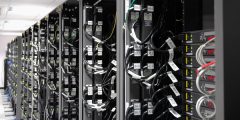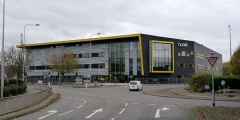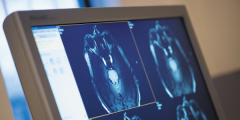Archiving a website
April 22, 2022
In this guide, we show you how to download and package a website for archiving. If you have produced a website for your research project, you may wish to archive it (or be obliged by your funder to do so). Here, we show you how to do two things: (a) convert a website to a …
Conducting research interviews securely online
February 25, 2021
Interviewing online has several advantages. These include the ability to conduct interviews from anywhere, easily link to automated transcription, and take advantage of document sharing. In this blog, we offer guidance for ensuring compliance with ethical and research-data-management obligations when interviewing online. Microsoft Teams – simple and secure Staff and students at the University have …
Our approach to delivering Research Data Management services
January 22, 2018
As part of a broader Digital Research Environment Strategy which the University’s Information Services are delivering – a strategy described in our envisioning video – we have started working on creating new Research Data Management (RDM) services. There are multiple reasons for us to commission new RDM capabilities: First, it’s part of the normal life cycle …
FAIR in Practice?
November 10, 2017
When we talk about research data management, we often talk about researchers depositing their own data and having to identify and re-use data produced by others. However, the process of identifying suitable data and making use of other people’s data is often challenging and sometimes impossible. In a world where the volume of data is …
An Introduction to the General Data Protection Regulation for Research
October 6, 2017
The Digital Research Team are supporting the university’s preparations for the impending introduction of the General Data Protection Regulation. In this blog post, we introduce a summary of the main principles of the regulation, touch on some of the considerations for research and outline the ways in which the university is making preparations. 1. What …
Data management planning for a signature research centre
June 1, 2017
Scientific equipment can now regularly produce what we might perceive enormous volumes of data. Gene sequencers or imaging system that can produce 200 gigabytes in a day are already in common use at the University of Nottingham, and equipment already exists which can produce 100 terabytes in a day. Data volumes are always likely to …
Data management in the NMRC
April 28, 2017
The Nanoscale and Microscale Research Centre The Nanoscale and Microscale Research Centre (nmRC) is a cross-disciplinary facility at the University of Nottingham, supporting world-leading materials characterisation and nanoscience. The NMRC is housed at University Park in the Cripps South Building (Behind the school of Chemistry). It houses a range of instruments and expertise spanning: Scanning Electron …
Emerging data management needs in the School of Education
March 24, 2017
Over the last few weeks the Digital Research Team have been meeting with a range of researchers across the School of Education to understand what capabilities they need to securely manage their research data. The researchers were identified based on their collective representation of the types of research and data across the school. There were …
Secure RDM in Education: Digital Research Case Study 2 2017
The School of Education works with a vast range of personally sensitive research data, much of which involves teaching and learning with children. The SoE also has a significant throughput of post-graduate researchers per year, meaning research data is being created and archived quickly. An added complexity is that much of this data is gathered …
A security plan for the US National Institutes of Health
March 13, 2017
I’ve been supporting research colleagues who are applying for permissions to access to data held by the US National Institutes of Health (NIH). This is data collected from patients, and relating to a serious medical condition, and hence considered very sensitive, even though anonymised at source. To obtain access permissions, we have created a plan …












Recent Comments